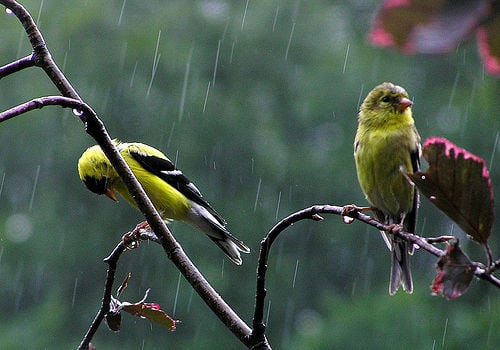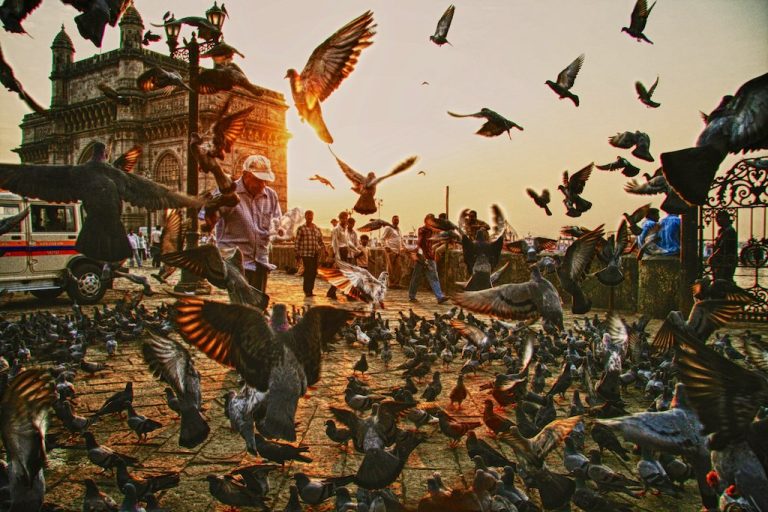NATURE: “Earth’s immeasurable surprise”
Larkin in comparison with Wordsworth and Robert Frost
——————————————————————————————–
Synopsis:
Larkin carves a niche as a poet of nature as he treats nature as the source for fragile happiness in his contact with nature. He does not recall the events of his contact with nature. As a nature poet, he marks a cleat-cut difference between Wordsworth and Robert Frost. Nature is plentiful with its beauty in variety for the gaiety of onlookers. Poets look at nature and react to it in diverse ways. Some poets like Wordsworth worship nature, giving it the status of divinity. Some poets like Robert Frost treat nature as the source for rejuvenation on their momentary contact with nature. Some poets like Philip Larkin enjoy the beauty in nature for a little while and shares the plight of transient lives of leaves and flowers. He observes cyclic changes in nature and sympathies with the pathetic plight of the non-human world. He shares the suffering of animals, birds, and other objects of nature.
Key words:
Nature, Wordsworth, beauty, gaiety, worship, Robert Frost, momentary, contact, source, rejuvenation, Larkin, enjoy, beauty, concur, time, powers, concern, transient, trees, greenness, grief, suffering, seasons, cycle, objects, man, animals, birds, insects,
———————————————————————————————
Research Article:
Nature is plentiful with its beauty in variety for the gaiety of onlookers. Poets look at nature and react to it in diverse ways. Some poets like Wordsworth worship nature giving it the status of divinity. Some poets like Robert Frost treat nature as the source for rejuvenation on their momentary contact with nature. Some poets like Philip Larkin enjoy the beauty in nature for a little while, sharing the suffering of trees for the transient lives of leaves and flowers.
Philip Larkin carves a niche as a nature poet although he did not write extensively about it. He finds nature as “earth’s immeasurable surprise” but regrets the brevity of verdant and floral beauty. Their beauty does not have eternity. In the endless stream of time, the greenness of leaves, which is associated with joy, transforms into the brownness of leaves at the time of their fall, reflecting their transitory nature. Larkin feels it “a kind of grief” as he has sensitive heart not only for the suffering of trees but also for human suffering. The joy in life diminishes to sorrow due to seasonal changes.
,
The trees are coming into leaf
Like something almost being said;
The recent buds relax and speed,
Their greenness is a kind of grief “The Trees” (CP, 166)
The charms of leaves and flowers diminish to fall. Larkin feels sorry for the leaves and flowers that do not stay longer on the stems as treasures for the pleasure of onlookers. Their glory is transient for leaves fall in autumn and flowers fall after their ephemeral beautiful life. Leaves shed but the trees have inherent power in wearing new leaves by means of the “yearly trick of looking new” (TWW-12) in place of the leaves fallen due to winter’s deathblow.
Time in its endless flux, brings about changes in the life of man as per annual seasons. Keats appropriately calls them Human Seasons in his poem, Human Seasons’. The seasonal changes occur in both nature and man, as the both, “exist in a linear-time dimension”. Nature exists in time’s cyclical patterns. Nature exhibits seasonal cycles and natural recurrences in the flux of time,
Time is the echo of an axe
Within a wood. Poem: XXVI (CP, 295)
In the strict governance of time, winter puts an end to the cycles of seasons every year. The changes in the life of man are akin to those in the life of trees “every year”. The seasonal changes in nature are cyclic in the reign of time. The trees as in “The Trees” have the renewal of life and look “afresh” every year whereas man has no such inherent powers.
Larkin draws a striking contrast between man and nature though man is its integral part. Man’s fragility contrasts with that of the trees’ restorative technique in the seasonal cycle. Man’s flow of life is in contrast with man for he lacks in the internal and integral restorative power. His life becomes transient in time’s flux as delineated in “Solar” and in “Sad Steps”:
You exist openly;
Our needs hourly
Climb and return like angels. “Solar” (CP, 159)
Of being young: that it can’t come again,
But is for others undiminished somewhere “Sad Steps” (CP, 169)
When man is deprived of the restorative power, he feels sorry for vulnerability. Nature has restorative powers: “the yearly trick of looking new” (TWW,12).
Though the trees have magical powers for restoration and mysterious technique of looking new every year in the incessant flow of time, the beauty of spring is transient and vulnerable because it wilts and withers away with the approach of winter as life that ends with the coming of death at time’s call. The green leaves fall in autumn in the wake of the disruption of winter, causing “a kind of grief”.
For Larkin, man’s life for transience, “Suffering is exact” (CP, 32) is akin to trees’ grief as Larkin tells mankind and feels for mankind for its transitory nature. As a poet and man, he therefore shares the suffering of the human and the non-human worlds. He says that man lives to suffer when he fails in his lifelong struggle in search of meaning. He universalizes human suffering by the use of “we”. He therefore shares the suffering of a rape victim as an observer from distance but makes the reader understand and share her pathetic plight:
Even so distant, I can taste the grief, “Deceptions” (CP-32)
Larkin finds an analogy in the lives of creatures like man and those of trees, shrubbery, and creepers. He marks a clear-cut departure from Wordsworth in the treatment of nature on one hand and Robert Frost on the other.
Larkin’s early volume of poems, The North ship shows the signs of Romanticism as in Yeats’s early poems, “a paradise”. Poem III of The North ship presents Larkin’s love of moonlit night:
The moon is full tonight
And hurts the eyes
It is so definite and bright,
What if it has drawn up
All quietness and certitude of worth
Wherewith to fill its cup. Poem: III (TNS, 14)
Larkin submits himself to the beauties of nature: moon, meadows music, wind, etc., but comes to the world of reality where he finds full of sadness:
How to recall such music, when the street
Darkens? Among the rain and stone places
I find only an ancient sadness falling, Poem: IX, (TNS, 21)
With the advent of spring, “All catches alight” (CP, 272) and birds “are crazed with flight” in delight. This Larkin’s attitude towards nature underwent a startling transformation to be unique and mark a distinction from Wordsworth.
For Larkin, the delight of spring is however transitory as winter falls every year in the flow of time to destroy the beauty of spring. The line in the poem, ‘All catches alight’, “A drum taps: a wintry drum” (CP, 273) reminds us of the inevitability of the advent of winter to destroy the beauty of spring as death that destroys youth in time’s flux,
Larkin watches the beauty of spring and gets fragile happiness but feels sorry for the brevity of spring. He entertains the readers for their participation in nature, but he watches nature from a distance. For him, nature looks outwardly beautiful for its ephemeral pleasure on one hand. He shares the suffering of trees on the hand. He does not get any consolation from the cyclic patterns of nature as in “The Trees”. He feels sympathy for the trees’ “greenness is a kind of grief” (CP, 166). He describes spring in “Coming” which presents him momentary pleasure in the beauty of the “fresh-peeled voice of a thrush” (CP, 33). He deals with all the seasons in the flow of time including autumn as in “Broadcast”. He enjoys child-like pleasure in walking through the thickly wide spread of fallen leaves:
I lose
All but the outline of the still and withering
Leaves on half-emptied trees. “Broadcast” (CP, 140)
Wordsworth, like other Romantic poets, goes to nature for its sights, scents and sounds to be its thrall to its sensuous beauty. He gets engrossed into the beauty of nature for bliss. He worships nature since he finds ecstasy and solace in contact with nature. He treats nature as mother and teacher. He gets infinite pleasures for the treasures of nature. He revives the memories of the beauteous forms of nature seen earlier.
And then my heart with pleasure fills
And dances with the daffodils. “The Daffodils” (Poetical works)
Wordsworth stresses the harmony that exists between the soul of man and the soul of nature whereas Robert Frost has contact with nature for momentary pleasure in its contact only to do the work at hand with new vigor and enthusiasm. Wordsworth on the contrary gets engrossed into the beauty of nature to enjoy bliss:
A poet could not but be gay
In such a jocund company;
I gazed – and gazed – but little thought
What wealth the show to me had brought. “The Daffodils”
Larkin’s treatment of nature is different from Wordsworth’s. Larkin is against nature-worship like the other Movement poets. In Larkin, nature is time-bound. For the transience of leaves and flowers, he feels sorry for that. He has contact with nature for a fragile happiness in contrast with Wordsworth. He remains outside nature’s romantic powers. As Bruce Martin points out,
“Larkin is equally intent on deromanticizing Nature and man’s place in it. For one thing, he doesn’t talk about Nature very often… We see a poet regretting that Nature is not as Wordsworth promised, with Larkin, we find a man so removed from the nineteenth–century debate over Nature that he never thought to take seriously the notion of Nature as imminent benign.”
The momentary contact with nature helps Robert Frost to forget the stress and strain of reality on one hand and leave him refreshed and rejuvenated to attend his duties with new vigor and enthusiasm on the other.
Larkin is in contrast with Robert Frost who draws a line between man and nature but watches the beauty of nature for a short while. In the momentary contact with nature, he feels refreshed and rejuvenated to have new vigour and enthusiasm. The fact is clear in his poem “Birches”. He describes his momentary climb to heaven by swinging birches. He comes back, realizing his sense of duty on earth:
Earth is the right place for love
I do not know where it is likely to go better
“Birches” (Mountain Interval & CP, 153)
For Larkin, nature bestows on its beholder ephemeral pleasure. He does not recall the memory of the pleasure got at the sight of beauties in nature unlike Wordsworth. In this connection, he comments, “Deprivation is for me what daffodils were for Wordsworth”. His poems reflect his not being one with his environments:
No, I have never found
The place where I could say
This is my proper ground,
Here I shall stay; “Places, Loved Ones” (CP, 99)
Larkin’s treatment of nature is evident in poems like “spring”. He keeps away from nature, as Wordsworth’s type of union is impossible for him:
The branch-arrested mist of leaf, and me,
Threading my pursed-up way across the park
And indigestible sterility. “Spring” (CP, 39)
Larkin has contact with the beauty of the songs of the stars, “their blazing solitude” for a fragile pleasure but comes back to “the unquickened world” as a sign of his separateness from nature:
The stars sang in their sockets through the night:
‘Blow bright, blow bright
The coal of this unquickened world’. “Night Music” (CP, 300)
Larkin draws a human parallel to the non-human world. “First sight” reflects the fact that lambs do not understand that the vast land, covered with snow in cold weather, provides rare possibilities of life for them:
They would not grasp it is they knew,
What so soon will wake and grow
Utterly unlike the snow. “First Sight” (CP, 112)
Here lambs are ignorant of “the eroding agents” (TLD, 26) of time to bring about changes in them. Larkin studies the action of grasping in the lambs that are like children in Blake’s Songs of Innocence and bird in Eliot’s “Burnt Norton” of Four Quartets. Larkin says that the lambs “would not grasp” as Robert Frost does in “At Woodward’s Gardens”, referring to monkeys:
They might not understand a burning – glass.
They might not understand the sun itself.
It’s knowing what to do with things that counts.
“At Woodward’s Gardens” (Robert Frost’s Poems)
Larkin is very much content with the momentary happiness that he gets in nature. His poetry reflects his love of nature and nature’s hold on man. His love of nature is seen in his cycle rides and walks in the countryside as Dale Salwak says,
On Sunday, therefore, he would sometimes ask one of us, if we happened to be free, to accompany him on cycle-rides or walks. The open country is very accessible from Hull; in all directions, one has only to travel three or four miles to reach wide pleasant, if flattish, countryside.
As Larkin is against nature-worship, he remains outside nature’s powers of attraction and absorption. As Bruce Martin says, “The most honest and sympathetic figures in Larkin’s world go largely unrewarded; with a rare exception those habits of mind become merely their own rewards, necessary but insufficient for genuine joy. The outsider for Larkin is always a pathetic figure”.
Hence, Larkin’s treatment of nature comes closer to Robert Frost in “Stopping by woods on snowy Evening”. The Frost speaker comes back from nature like the Larkin speaker. The Frost speaker is for his momentary escape to the beauty of nature but comes back to realize the sense of man with the sense of duty:
Woods are lovely, dark and deep
But I have promises to keep
And miles to go before I sleep
And miles to go before I sleep.
“Stopping by woods on a snowy Evening”
(Robert Frost: The Aim was sung, 10)
Larkin has a momentary contact with nature but comes back to realize his inevitable share in the suffering of human and non-human worlds as he has sensitivity to suffering. As Blake Morrison points out, “… nature is seen not as an autonomous organism which sometimes inspires ‘sublime’ feelings but as a mechanism calculated to induce, and existing solely for human pleasure”.
Larkin is a nature poet in a different way. He is conscious of nature’s powers and their effect on man. He beholds nature from distance for a momentary pleasure, making the reader participate in the scene. He responds to nature on his way:
To wake, and hear a cock
Out of the distance crying,
To pull the curtains back
And see the clouds flying- “Dawn” (CP, 284)
Larkin is interested in depicting the life of a common man and nature around him in a unique way but not in Wordsworth’s tradition. He is an uncommon poet of the common man because of his own sensitivity to suffering, especially the suffering of a common man. Larkin’s depiction of life is like that of Wordsworth’s “still, sad music of humanity”.
Larkin as a poet is more attentive to human suffering than to the non-human world. As Davie says in support of Larkin that the Movement poet “makes himself numb to non-human creation in order to stay compassionate towards the human”.
The fragility of the natural world is like that of human world. “Cut Grass” reflects the emotion of sadness, attributed to the transience of grass. Larkin shares its suffering as he shares that of man in the strict governance of time. Not even a blade of grass leaves his heart unmoved when it is cut off. The positive response even to the blade of grass shows his sensitivity to the suffering of flora, like the blade of grass as in “Cut Grass”. The life of grass is brief like that of man. When grass is cut off, the stalks of grass breathe their last,
Cut grass his frail:
Brief is the breath
Mown stalks exhale.
Long, long the death.
“Cut Grass” (CP, 183)
Here nature, as a benevolent force, evokes joy in the hearts of onlookers. The poet’s response to the human and non-human worlds is unique. “Gladly my tongue” shows his positive response to nature. The image of the golden sheep serves as a source of joy in “To a Very slow Air” but “Triple Time” written in the later stage presents a startling transformation in his treatment of nature as the sheep stand for disappointed hopes:
A valley cropped by fat neglected chances
That we insensately forbore to fleece. “Triple Time” (CP, 73)
Despite their constant growth in ageing, the trees come to begin afresh because of their restorative powers every year. In nature, trees have rebirth and renewal though they grow old. It is spring, which is responsible for the renewal of being fresh in the trees every year:
Yet still the unresting castles thresh
In full grown thickness every May
Last year is dead, they seem to say,
Begin afresh, afresh, afresh. “The Trees” (CP, 166)
The trees have grief with the advent of winter but all the joys with the coming of spring to fill nature with full of charms. Their sorrow alternates with their joy. Unlike man, the trees have rebirth and the renewal of spring every year. J. R. Watson points out this welcome feature: “Yet each year they imply the renewal of all things, the rebirth of the world in a recreation of the paradisal time”.
“Solar” presents the theme of time, which is responsible for day and night cycle and the cycle of seasons in a year. Larkin presents the sun rising and setting and the earth’s travel on its own axis in a year,
The eye sees you
Simplified by distance
Into an origin. “Solar”(CP, 159).
The sun, which serves as the symbol for energy, force, warmth, and life, enables the nine planets to revolve in their respective orbits. As Terry Whalen studies Larkin’s attitude towards sun, “The sun appears in Larkin’s world as benevolent and mysterious and as the signification of a dignity to life and a hope.”
Man depends on the sun for life. The sun makes the earth rotate and becomes responsible for the cycle of seasons. Man’s needs are “hourly” as he travels through time. The “solar” doesn’t mean “sun” but the solar system and the nine planets rotate to bring about cyclic changes. The constant recurrence of day and night system in “Solar” is attributed to the sun that is suggestive of time’s endless movement. The sun is eternal in ruling over the whole of human and non-human life:
You exist openly,
Our needs hourly
Climb and return like angles,
Unclosing like a hand,
You give for ever. “Solar” (CP, 159)
Time in its flow makes the moon wax and wane spanning a month to culminate in a year. The earth’s revolution around the sun makes the year witness the cyclic system of seasonal occurrence. The poem reflects man’s beholding “Earth’s immeasurable surprise” (TWW, 36). As a result, “one shivers slightly, looking up there” (CP, 169) as an outsider.
The moon is suggestive of youth and vigour, and spring is suggestive of youth is renewed once a year but not youth. The moon reminds him of his youth in the past,
Is a reminder of the strength and pain
Of being young; that can’t come again,
But is for other undiminished somewhere. “Sad Steps” (CP, 169)
Larkin marks a clear-cut distinction by not sentimentalizing his youth in contrast with the Romantics.
The cyclical movement of water in nature from the sea via the cloud to the sea is suggestive of the ceaseless flow of time. Water is invincible and uncontrollable like time. The sea serves as an inexhaustible source for any havoc to cause a colossal loss:
Rain patters on a sea that tilts and sighs.
… … … …
Above the sea, the yet more shoreless day,
Riddled by wind, trails lit-up galleries:
They shift giant ribbing, sift away
Such attics dread of me! Such absences! “Absences” (CP, 49)
Larkin sympathises with the loss in “The Mower”. The Larkin speaker shares the suffering of an innocent insect eating animal:
A hedgehog jammed up against the blades;
Killed. It had been in the long grass,
I had seen it before; and even fed it, once.
… … … …
… … Burial was no help: “The Mower” (CP, 214).
Larkin has a sensitive heart for suffering and so he expresses his heart-felt grief over the demise of a hedgehog:
Next morning, I got up and it did not
The first day after death, the new absence
… … … …
Of each other, we should be kind
Where there is still time. “The Mower” (CP, 214)
Larkin shares the pain of the rabbit, poked with a walking stick by a city visitor to the countryside:
Caught in the center of a soundless field
While hot inexplicable hours go by. “Mixomatosis” (CP, 100)
Thus, Larkin shares the suffering animals like rabbits but also that of birds like pigeons:
On shallow slates the pigeons shift together,
Backing against a thin rain from the west
Blown across each sunk head and settled feather. “Pigeons” (CP, 109)
“At Grass” explores a human parallel to the racehorses. The horses reach the age of retirement in the endless passage of time:
The eye can hardly pick them out
From the cold shade they shelter in,
Till wind distresses fail and mane;
Then one crops grass, and moves about
– The other seeming to look on –
And stands anonymous again. “At Grass” (CP, 29)
Larkin turns pathetic on their retirement. “They can hardly pick them out”. The horses recall the richness of the past. He has a special quality not only in sharing the suffering of human and non-human worlds but also in the drawing of a human parallel to the non-human world. He projects his ideas into the flora and the fauna, attributing human motives in their actions. He expects the flora and fauna to think, guess or understand like human beings with a view to establishing an analogy between man and nature or between the human and the non-human worlds. As Blake Morrison says that Larkin has “interest in drawing a human parallel and in pointing a moral…”.
The horses are at present free in the pensioned retirement position with some pleasant memories like retired human beings:
Do memories plague their ears like flies?
They shake their heads. Dusk brims the shadows
… … … …
… … the crowds and cries
All but the unmolesting meadows.
Almanacked, their names live; they
Have slipped their names, and stand at ease,
Or gallop for what must be joy,
And not a field glass sees them home,
Or curious stop – watch prophesies:
Only the groom, and the groom’s body
With bridles in the evening come. “At Grass” (CP, 29).
The expression: “They shake their heads”, reflects the attribution of human motives as in Robert Frost:
He gives his harness bells a shake
To ask if there is some mistake.
“Stopping by Woods on a Snowy Evening”
(Robert Frost: The Aim was Sung, 10).
The last line of “At Grass”: “With bridles in the evening come “means as the first line of “Going”, “There is an evening coming in” does. John Lucas describes the conclusion as “the beautiful ending” “with its almost pagan suggestion of life slipping into the shadows.”
The poem “Wires” also shows that the cattle gain maturity through painful experience like men. When time flows, young cattle become old with the knowledge of “Electric limits to their widest senses” (CP, 48).
Larkin says in “Absences” about the elements of nature: rain, storm, water, waves, sea, etc. Water, which is symbolic of time, comes in the form of rain from clouds to flow to the sea as an unending source for the clouds to bring rain again,
Rain patters on a sea that tilts and sighs,
Fast – running floors, collapsing into hollows,
Tower suddenly, spray-haired, contrariwise,
… … … …
Where there are no ships and no shallows. “Absences” (CP, 49).
All the elements and objects in nature: wind, moon, trees, cock, etc., in the incessant movement remind us of time. In “Wedding Wind” the wind which is found “thrashing/My apron” (TLD, 15) blew all wedding night and all wedding day to create the feeling of fear because of the violence of nature elements. Nature as portrayed in “Wedding Wind” is an instrument that time handles to bring about many changes against the wishes of the bride and the bridegroom. The wind conspires to spoil the happiness of the wedded couple:
The wind blew all my wedding-day,
And my wedding-night was the night of high wind;
And a stable door was banging, again and again. “Wedding Wind” (CP, 11)
The wind blows not only to spoil the happiness of the couple but also to cause suffering to beasts and animals. So, the speaker shares their suffering. The ever-blowing wind, which is suggestive of time flowing endlessly, devastates not only the happiness of the human world but also that of the non-human world. The poet presents a lively description of the wind and its devastation.
… … All is the wind
Hunting through clouds and forests, thrashing
My apron and the hanging clothes on the line. “Wedding wind” (CP, 11).
The speaker admits his being defeated by the raging of the wind and tries “to go and shut it”, leaving me/stupid in candlelight, hearing the rain” (CP, 11).
The wind is a disruptive force of nature, but the speaker feels how wind is favourable to him,
Outside, the wind’s incomplete unrest
Builds and disperses clouds about the sky,
And dark towns heap up on the horizon.
None of these cares for us. “Talking in Bed” (CP, 129).
Nature reflects the beholder’s emotions. The speaker in “Ugly sister” watches nature outside, staying inside. The objects of nature reflect the speaker’s emotions and feelings:
Let the music, and violin, cornet, and drum
Drowse from my head. “Ugly Sister” (CP, 292).
Larkin lays emphasis on man’s separation from nature to reflect his complex relation with her (it). Nature has negative rewards to bestow on man. Janice Rossen is right in referring to man’s complex relation with nature: “Separation from nature occurs in much of Larkin’s work, and he may have created poetry out of his lack of a satisfying connection with it”
Nature’s forces are around man’s habitation. The church building in the passage of time collapses and nature’s forces enter it. Grassy plants grow up in the cracks of the church building. Nature becomes a part of church building,
Grass, weedy pavement, brambles, buttress, sky,
A shapeless recognisable each week,
A purpose more obscure. “Church Going” (CP, 97).
Larkin draws a distinction between man’s limited powers and nature’s unlimited powers. In course of time, church collapses allowing natural forces to enter it. He ultimately admits nature’s dominance in the endless flow of time. He, as an agnostic, seeks isolation not only from nature but also from religion, facing a basic problem that he does not know “what to look for”.
Larkin watches not only nature but also the social activities and festivities in isolation. His relationship with nature is so complex that one cannot understand. He watches the wind blowing endlessly in the dark during the night with its destroying forces. He deals with nature as a destroying force in the later poetry but not in the earlier poetry. His earlier poetry reflects the speaker’s fragile pleasure in the watching of nature:
I lie and wait for morning, and the birds,
The first steps going down the unswept street,
Voices of girls with scarves around their heads. Poem: XVI (CP, 277)
Larkin, as the poet of nature, finds fragile happiness in his contact with nature. Keeping away from the scene of nature, he observes cyclic changes in nature and sympathies with the pathetic plight of the non-human world. He concurs with the powers of nature in destroying man’s desires.
Poetcrit, 37-2 July-December 2024
NOTES
Abbreviations: Collected Poems (CP). The North Ship (NS), The Less Deceived (TLD), The Whitsun Weddings (TWW), High Windows (HW)
Bruce Martin, Philip Larkin, (Larkin: Longman, 1957) 54.
Larkin, Required Writing, (London, Faber & Faber, 1986) 47.
Dale Salwak (ed), Philip Larkin: The Man and his work, (Iowa, Iowa Press, 1989) 29.
Bruce Martin, Philip Larkin, 59
Blake Morrison: The Movement: English Poetry and Fiction of the 1950s. London: Cambridge University Press, 1980) 168.
Davie, (Quoted in Blake Morrison), 171.
- R. Watson, “The Other Larkin” Critical Quarterly. Vol. 17, No. 4, Winter 1975, 356.
Terry Whalen, Philip Larkin and English Poetry, (London: Macmillan, 1986) 72.
Blake Morrison, The Movement, 170.
John Lucas, Modern English Poetry: From Hardy to Hughes: A Critical Survey, (London: Macmillan, 1986), 201.
Janice Rossen, Philip Larkin: His Life’s Work, (Iowa: Iowa Press, 1989) 38.




